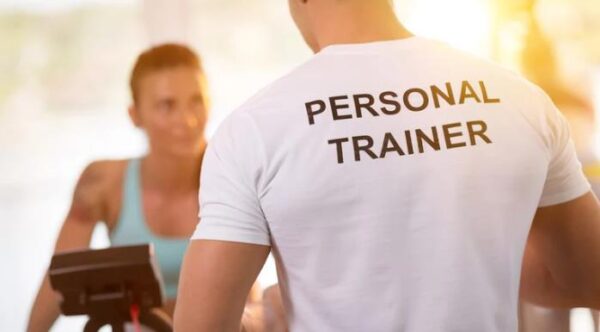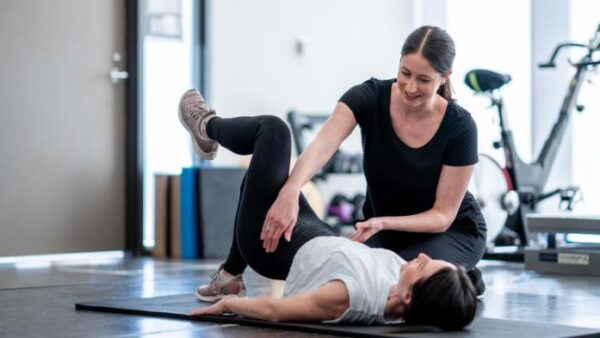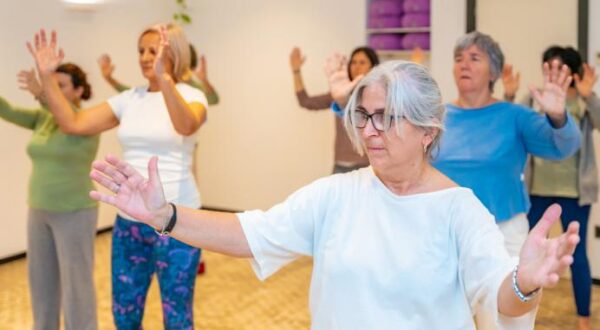Are you passionate about fitness, health, and helping others achieve their wellness goals? If so, pursuing a degree in exercise science might be the perfect fit for you! This dynamic field offers a wide range of exciting career opportunities that allow you to make a positive impact on individuals’ lives while delving into the science behind physical activity. From personal training to sports performance enhancement, there are endless possibilities awaiting those with an Exercise Science degree. Let’s explore things to do with an exercise science degree!
What is Exercise Science?

Exercise science is a multidisciplinary field that combines aspects of biology, anatomy, physiology, and biomechanics to study the effects of physical activity on the human body. It focuses on understanding how exercise impacts overall health, performance, and well-being.
Students in Exercise Science programs learn about topics such as exercise prescription, nutrition, kinesiology, and sports psychology. They gain practical skills in assessing fitness levels, designing workout plans, and analyzing movement patterns.
The field encompasses various areas like sports performance enhancement, injury prevention and rehabilitation, chronic disease management through exercise intervention,and optimizing physical fitness for individuals of all ages and abilities.
Exercise science professionals play crucial roles in helping individuals lead healthier lifestyles by promoting physical activity as a key component of overall wellness strategies.
The Benefits of Studying Exercise Science
Studying exercise science opens up a world of opportunities for those passionate about health and fitness. It equips you with the knowledge and skills to help individuals lead healthier lives through physical activity and proper training techniques.
One major benefit is the ability to work closely with clients as a personal trainer, tailoring exercise programs to meet their specific goals and needs. This hands-on approach allows you to make a direct impact on people’s lives by helping them achieve their fitness aspirations.
Moreover, delving into exercise science can lead to a rewarding career as an athletic trainer, where you play a crucial role in preventing and treating sports-related injuries. You get to work on the front lines, ensuring athletes stay healthy and perform at their best.
Whether it’s working in clinical settings, designing rehabilitation programs, or conducting research to advance scientific knowledge in the field, studying exercise science offers diverse avenues for professional growth and fulfillment.
What Can You Do With an Exercise Science Degree?
Personal Trainer

Are you passionate about fitness and helping others reach their health goals? With an exercise science degree, you can become a personal trainer. As a personal trainer, you have the opportunity to work closely with clients on an individual basis. You get to create customized workout plans tailored to each person’s needs and abilities.
Personal trainers play a crucial role in ensuring clients perform exercises correctly to prevent injuries and maximize results. By offering guidance on proper form and technique, you help individuals achieve optimal performance while staying safe during their workouts.
Moreover, as a personal trainer, you serve as a source of motivation for your clients. Your encouragement and support can inspire them to push past limits they never thought possible. It’s incredibly rewarding to witness your clients’ progress and see them accomplish their fitness aspirations under your guidance.
Strength and Conditioning Coach
Are you passionate about helping athletes reach their full potential? Consider a career as a strength and conditioning coach! These professionals play a crucial role in enhancing athletic performance by designing personalized training programs that target strength, power, agility, and endurance.
Working closely with athletes from diverse backgrounds, strength and conditioning coaches implement strategies to optimize physical capabilities. Whether it’s high school teams striving for victory or professional athletes aiming for peak performance, these coaches tailor workouts to suit individual needs.
By focusing on specific areas of improvement, such as increasing speed or building muscle strength, strength and conditioning coaches help athletes excel in their respective sports. Their expertise and guidance contribute significantly to the success of sports teams across various levels.
Exercise Physiologist
 Are you passionate about helping individuals with chronic conditions lead healthier lives through exercise? If so, a career as an exercise physiologist might be the perfect fit for you.
Are you passionate about helping individuals with chronic conditions lead healthier lives through exercise? If so, a career as an exercise physiologist might be the perfect fit for you.
Exercise physiologists play a crucial role in assessing fitness levels, crafting personalized exercise plans, and offering lifestyle guidance to those battling heart disease, diabetes, or obesity. Working in diverse settings like hospitals, rehabilitation centers, or corporate wellness programs allows them to make a significant impact on people’s well-being.
By combining their knowledge of physiology with a deep understanding of how exercise affects the body, these professionals empower individuals to take control of their health and improve their quality of life. If you have a desire to blend science with compassion while making a difference in the lives of others, pursuing a career as an exercise physiologist could be your calling.
Athletic Trainer
Have you ever watched a sports game and marveled at how quickly injured players are attended to on the field? Athletic trainers are the unsung heroes behind that swift response. Their keen eye for spotting potential injuries before they escalate can make all the difference in an athlete’s career.
Beyond just first aid, athletic trainers play a crucial role in crafting tailored rehabilitation plans to get athletes back on their feet (or rather, back on the field) safely and swiftly. They combine medical knowledge with a deep understanding of sports dynamics to ensure that every player receives top-notch care.
From taping ankles to guiding recovery exercises, athletic trainers are there every step of the way, supporting athletes through their journey from injury back to peak performance. Their dedication and expertise keep our favorite sports stars in top shape and ready to shine under those stadium lights.
Clinical Exercise Specialist

Imagine being the guiding light for patients on their journey to recovery and well-being. As a clinical exercise specialist, you have the opportunity to make a significant impact in medical settings like hospitals or outpatient clinics. Your expertise in designing tailored exercise programs can help individuals with diverse medical conditions or injuries regain their strength and mobility.
By collaborating closely with healthcare providers, you play a vital role in promoting physical activity as an integral part of each patient’s treatment plan. By incorporating exercise into comprehensive care strategies, you contribute to enhancing patients’ overall health outcomes and quality of life.
Your ability to inspire and support individuals through challenging circumstances is invaluable. With your knowledge and guidance, patients can progress towards improved physical function, increased confidence, and enhanced well-being.
Fitness Director/Manager
Are you someone who loves the idea of being at the forefront of a fitness facility, making sure everything runs smoothly and members are engaged? As a fitness director or manager with an exercise science degree, your role is dynamic and diverse.
You’ll be in charge of managing staff, ensuring they deliver top-notch service to members while maintaining a positive work environment. Program development falls under your purview, too: creating exciting and effective fitness programs that keep clients motivated and coming back for more.
Marketing strategies will also be part of your daily tasks, such as promoting the facility to attract new members and retain existing ones. Budgeting plays a crucial role in financial management, balancing expenses while maximizing revenue streams.
Compliance with industry regulations is key to running a successful operation. Staying on top of legal requirements ensures smooth operations without any hiccups along the way.
Corporate Wellness Coordinator

Are you passionate about promoting health and well-being in the workplace? As a corporate wellness coordinator, you have the exciting opportunity to create a positive impact on employees’ lives. By developing and implementing wellness initiatives, you can inspire individuals to adopt healthy lifestyle choices.
Organizing fitness challenges can foster teamwork and motivation among employees while encouraging physical activity. Wellness workshops provide valuable information on nutrition, stress management, and overall well-being. These sessions empower individuals to take control of their health and make informed decisions.
Health screenings offer insight into employees’ current health status, enabling targeted interventions and support where needed. Through these initiatives, you play a vital role in cultivating a culture of wellness within the organization. Your efforts contribute to increased employee engagement, productivity, and overall satisfaction at work.
Researcher/Academician
Becoming a researcher or academician in the field of exercise science opens up a world of opportunities to delve deeper into the intricacies of human movement and physical fitness. With advanced degrees under your belt, you can immerse yourself in cutting-edge studies on exercise physiology, biomechanics, or sports nutrition.
As a researcher, you have the chance to contribute valuable insights that push the boundaries of knowledge within the realm of exercise science. Whether it’s exploring new training methods for athletes or unraveling the impact of different exercises on overall health, your research can shape future practices in the industry.
On the other hand, as an academician, you get to share your expertise with students eager to learn about exercise science. Teaching and mentoring aspiring professionals not only allows you to impart wisdom but also fosters a new generation of knowledgeable individuals who can make meaningful contributions to this dynamic field.
Conclusion
Pursuing a degree in exercise science opens up a wide range of career opportunities that allow you to make a positive impact on individuals’ health and well-being. Whether you choose to work as a personal trainer, strength and conditioning coach, exercise physiologist, athletic trainer, clinical exercise specialist, fitness director/manager, corporate wellness coordinator, or researcher/academician, the field of exercise science offers diverse paths for you to explore your passion for fitness and help others achieve their goals. With dedication and further education in the field, the possibilities are endless in this dynamic and rewarding profession.
